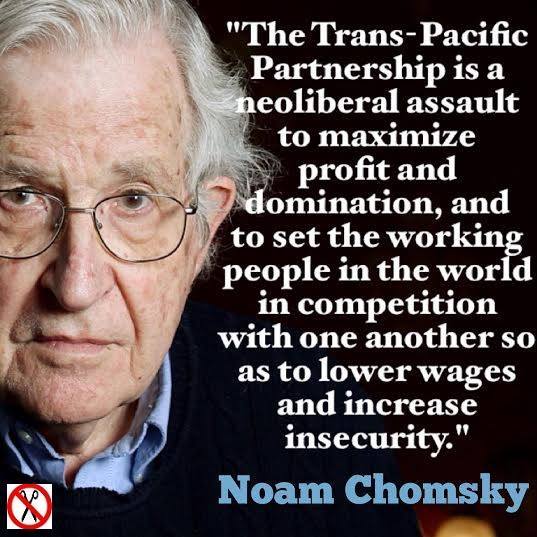Almost every day of the election campaign there has been a policy announcement that would potentially run foul of what I understand is currently in the Trans-Pacific Partnership Agreement (TPPA): more constraints on foreign investment or investors … regulation of mining practices … stronger health and safety laws for mining and forestry that are backed by effective penalties … subsidise reopening of Hillside workshop … replace the ETS with a more effective climate change strategy … stop the big banks and insurers rorting their customers … make polluters pay … and many more.
I do understand that this was an election campaign. The fine print of New Zealand’s existing obligations in a free trade or investment treaty should be allowed to not get in the way of promoting a platform that voters will support, let alone an agreement we have not yet signed.
But after the election political parties will need to confront reality: if they are serious about carrying through with their policies, they cannot support the TPPA. When negotiating a post-election coalition deal New Zealand First, the Greens, Internet Mana, the Maori Party and Labour must make the rejection of the TPPA, or at the very least renegotiation of the current text, a non-negotiable bottom line. If Phil Goff can’t swallow that position, he should not be made Labour’s spokesperson for trade.
The time for weasel words about weighing up the costs and benefits has gone. The outrageous US practice of unilateral certification that I exposed in my last blog means they will effectively rewrite the deal if Congress and its corporates don’t like what the governments signed up to.
The US will simply refuse to certify compliance, and bring the deal into force in relation to New Zealand, unless we change our laws to meet their expectations of our obligations, even if that obligation is not in the text itself. Based on past practice, the US may demand to review proposed laws before they are introduced, offer to help draft them, send their officials to Wellington to oversee the process. Forget “finessing” the enabling legislation to make use of ambiguities in the final text of the agreement; forget creative interpretations of the text. It is the US’s interpretation that will rule them all.
Couldn’t happen for New Zealand? Just remember what Glenn Greenwald told us about the NSA and GCSB waiting for the passage of the GCSB bill last year, so they could proceed with ‘phase two’ of Project Speargun to access the undersea cable that carries New Zealand’s Internet traffic.
In other words, the TPPA will only reflect New Zealand’s national interest to the extent that it coincides with the national interest of the USA. Dealing with this reality is not something that Labour can defer in the hope it may never happen.
The final push is on to conclude the TPPA by November. Rumours are firming up that each country’s top trade negotiators and ministers will meet in October, possibly in Sydney, and again later in the month or early November to deliver the outcome Obama wants when the leaders meet around the 13th of November.
If they can pull this off, they won’t be able to get a final text before mid-2015. But the political decisions would have been made and the officials ordered to convert them into legalese.
That outcome hinges on Japan and the US agreeing on agriculture, before mid-term elections in the US that are expected to increase the political power of the Republicans. There is a 50/50 chance they achieve that, which is why a national day of action has been called for 8 November across a number of TPPA countries.
